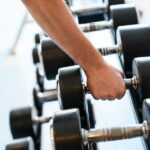Hairline Under Attack: DHT Is Destroying Your Masculinity 🔥
Hair loss in men is far more than a cosmetic concern — it’s often a signal from your body that something deeper is at play. One of the most overlooked yet critical factors is the role of hormones. Understanding how hormonal fluctuations can affect your hairline is the first step toward taking control of your appearance and confidence.
The Role of Testosterone and DHT
Testosterone, the primary male sex hormone, directly impacts hair growth. However, it’s the conversion of testosterone into dihydrotestosterone (DHT) that poses the biggest threat to your follicles. DHT shrinks hair follicles over time, making it harder for healthy strands to grow. This process is known as miniaturization, and it’s one of the leading causes of male pattern baldness.
Why Some Men Are More Vulnerable
Genetics largely determine how sensitive your scalp is to DHT. If you’re predisposed to hair follicle shrinkage, even normal levels of DHT can trigger hair thinning. That’s why some men begin balding in their 20s while others keep a full head of hair into their 60s.
Other Hormones Involved in Hair Health
Beyond testosterone, hormones like cortisol (the stress hormone), insulin, and thyroid hormones also impact hair growth. Elevated cortisol levels from chronic stress can disrupt the hair growth cycle and push follicles into the shedding phase prematurely. Likewise, thyroid imbalances can cause both hair thinning and breakage.
Signs That Your Hormones Are Impacting Hair Health
If you’re experiencing sudden or severe hair loss, it’s time to pay attention to symptoms like low libido, fatigue, weight gain, or mood swings. These may be signs of a broader hormonal imbalance. A blood panel can help identify irregularities in testosterone, DHT, and other key hormones.
How to Test Your Hormone Levels
Start by visiting a healthcare provider who specializes in men’s health. Ask for a comprehensive hormone panel that includes total and free testosterone, DHT, thyroid (TSH, T3, T4), and cortisol. Analyzing this data gives you a clear picture of how your internal health may be affecting your external appearance.
Hormonal Solutions to Combat Hair Loss
Once you understand your hormonal profile, you can take targeted action. Treatments like finasteride work by blocking the conversion of testosterone into DHT. However, these pharmaceutical options can come with side effects such as lowered libido or mood changes. That’s why many men are turning to natural alternatives like saw palmetto, pumpkin seed oil, and zinc — all of which have shown promise in lowering DHT levels without harsh side effects.
Natural Lifestyle Changes to Balance Hormones
Adjusting your diet, exercise, and sleep habits can naturally regulate your hormonal balance. Incorporate resistance training into your fitness routine, eat more healthy fats like omega-3s, and cut out sugar and processed foods. Also, aim for 7–9 hours of quality sleep every night. These foundational habits support your endocrine system and keep testosterone levels stable.
Sleep, Light, and Hormonal Health
Poor sleep can wreak havoc on your hormonal balance. Melatonin production is crucial for managing cortisol and supporting testosterone levels. Consider using blackout curtains to enhance your sleep quality and promote hormonal recovery overnight.
Stress Management and Cortisol Control
Learning to manage stress is essential. Practices like mindfulness, breathwork, and physical movement help reduce cortisol, which indirectly supports your hair and hormonal health. Daily movement routines can be powerful tools in balancing your hormones naturally.
Supplements That Support Hair and Hormone Health
Supplements like biotin and collagen are great for the structure of your hair, but addressing the hormonal side of things is key. Consider adding ashwagandha to reduce cortisol, or tongkat ali and maca root to support testosterone. Always consult a medical professional before beginning any supplementation program.
Environmental Factors and Hair Loss
Did you know that light pollution can reduce testosterone levels? Exposure to artificial light at night disrupts melatonin, which affects hormonal cycles — and ultimately, your hair. Creating a light-conscious environment may help restore balance.
Sound Therapy and Hormonal Balance
Emerging research is exploring how sound frequency might influence testosterone and stress response. While still a new area of study, it’s an exciting frontier in optimizing hormonal health from multiple angles.
Final Thoughts: Take Control of Your Hair and Hormones
Hair loss can be disheartening, but understanding its root causes empowers you to take action. Hormones play a central role, and by addressing imbalances through lifestyle, diet, and targeted therapies, you can restore not just your hair — but your confidence. Don’t overlook the internal causes of external symptoms. Take the next step and start correcting your hormonal health from the inside out.
If you’re serious about reclaiming your appearance and performance, check out the full guide to natural enhancement — it’s already helping thousands of men.
How Diet Directly Affects Hair and Hormonal Health
Your diet has a direct impact on hormone regulation, and by extension, your hair health. Consuming whole foods that support testosterone production and reduce inflammation is crucial. Key nutrients like zinc, magnesium, vitamin D, and protein are essential for hair follicle strength and hormonal support. Zinc, in particular, plays a central role in DHT metabolism, making it an important tool for combating hair loss.
Best Foods to Include in Your Diet
Some of the best foods for maintaining hormonal balance and reducing hair loss risk include:
- Grass-fed beef and eggs for protein and cholesterol (the building block of testosterone)
- Spinach and pumpkin seeds for magnesium and zinc
- Avocados and olive oil for healthy fats
- Oysters – one of the richest natural sources of zinc
- Wild-caught salmon for omega-3 fatty acids
Foods to Avoid
Processed foods, alcohol, and excess sugar disrupt hormonal pathways and promote inflammation. Soy products, which contain phytoestrogens, can also interfere with testosterone levels. Eliminate or minimize these from your diet to support your body’s natural hormone regulation.
Physical Activity as a Hormonal Optimizer
Regular exercise increases testosterone levels and improves blood circulation, which is essential for nourishing hair follicles. Resistance training, in particular, stimulates natural testosterone production and helps regulate insulin sensitivity — a major factor in hormonal health.
Types of Exercise That Help
Focus on compound lifts such as squats, deadlifts, and bench presses. High-intensity interval training (HIIT) is also effective at boosting growth hormone and testosterone levels while reducing excess body fat that may be producing estrogen. Staying active daily supports your entire endocrine system.
How Aging Affects Hormones and Hair Loss
As men age, testosterone levels naturally decline, and DHT sensitivity may increase. This is why hair loss tends to accelerate after the age of 30. Understanding this allows for proactive measures. You can start optimizing your lifestyle early or begin supplementation if levels are clinically low. Regular testing helps you stay ahead of these shifts.
Can Hair Loss Be Reversed?
While not all hair loss is reversible, many cases related to hormonal imbalances can be slowed or even reversed with the right interventions. Early action is key. Natural treatments, in combination with improved lifestyle habits, offer powerful results — especially when paired with hormonal support.
Emotional and Psychological Impact of Hair Loss
Hair loss often affects more than just appearance. It can lead to reduced self-esteem, social anxiety, and even depression in some men. These psychological effects are real and valid. Taking action to understand and treat the root cause can significantly improve your mental health and confidence.
The Confidence Connection
Studies show that men with a full head of hair are more likely to feel confident in social and professional settings. While confidence can come from within, regaining control over your hair can be a powerful boost. This journey is about reclaiming not just your image, but your self-assurance.
When to Seek Professional Help
If you’ve implemented lifestyle changes but still experience aggressive or unexplained hair loss, consult with a trichologist or endocrinologist. A specialist can offer tailored treatments, advanced diagnostics, and personalized support. Don’t wait until the problem escalates — early action yields better outcomes.
Choosing Between Natural and Medical Solutions
Both natural and medical approaches have their place. Some men respond well to herbal support and lifestyle changes, while others may require medications like minoxidil or hormone replacement therapy. Weigh the benefits and side effects carefully with a qualified practitioner. Whatever path you choose, consistency is key.
Daily Routine to Support Hair and Hormonal Health
Building a daily routine focused on hormonal optimization doesn’t have to be complicated. Here’s a simple example to get you started:
- Morning: Wake up early, get sunlight exposure within the first hour to regulate your circadian rhythm, and hydrate well.
- Breakfast: Prioritize protein and healthy fats — eggs with avocado, plus a zinc-rich side like pumpkin seeds.
- Mid-morning: Do a short walk or light movement session to reduce stress hormones and improve circulation.
- Afternoon: Include strength training 3–4 times a week. Focus on heavy lifts to spike testosterone levels naturally.
- Evening: Shut down screens an hour before bed. Use blackout curtains and soundproofing if needed to improve sleep quality and maximize hormonal recovery.
Consistency is what builds results. When your habits support hormonal equilibrium, your hair responds in kind.
FAQs on Hair Loss and Hormonal Imbalance
Can hormonal hair loss be reversed naturally?
Yes — by addressing DHT sensitivity, improving sleep, reducing stress, and balancing your testosterone levels, you can slow or even reverse hair loss in many cases. Targeted supplements like saw palmetto and pumpkin seed oil may help.
Is DHT the only hormone responsible for baldness?
Not entirely. While DHT is a major player, imbalances in cortisol, thyroid hormones, and insulin can contribute to follicle miniaturization and scalp inflammation, worsening the condition.
🧪 Hormonal Impact on Hair Health: At a Glance
| Hormone | Effect on Hair | Balance Strategy |
|---|---|---|
| DHT | Shrinks hair follicles | Block with saw palmetto, zinc |
| Testosterone | Can convert into DHT | Optimize naturally with sleep & training |
| Cortisol | Triggers shedding | Manage stress and use adaptogens |
| Thyroid | Impacts follicle regeneration | Check T3/T4 levels, support with selenium |
 Image representing: The Hidden Link Between Hair Loss and Hormones in Men and male power – via supremepenis.com
Image representing: The Hidden Link Between Hair Loss and Hormones in Men and male power – via supremepenis.com







